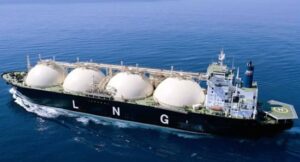Egypt’s long-term energy partnership with Israel is facing new uncertainty as regional unrest and political friction threaten a $35 billion natural gas agreement recently extended to 2040.
For years, Egypt has sought to position itself as a Mediterranean gas hub, but shrinking domestic output has forced the country to lean heavily on imports. Declining production at fields like Zohr, coupled with rising demand for electricity, has left Cairo dependent on Israeli pipeline gas and costly shipments of liquefied natural gas (LNG).
In 2024, Egypt imported record volumes from Israel — nearly one billion cubic feet per day — making up close to a fifth of its supply. Under the latest deal, Israel is set to send around 130 billion cubic meters of gas through pipelines to Egypt, a cheaper option than LNG, which currently trades at nearly double the cost.
But escalating conflict in Gaza has thrown the agreement into question. Israeli Prime Minister Benjamin Netanyahu has reportedly demanded personal approval before the deal moves forward, linking it to his wider political agenda. Egyptian officials, meanwhile, insist they have “alternative scenarios” should the arrangement collapse.
Analysts warn that replacing Israeli gas would come at a steep price for Egypt, with LNG imports straining foreign reserves and raising domestic energy costs. At the same time, Israel may use the standoff to push for higher export prices, with reports suggesting a possible 25% hike.
The Leviathan gas field, operated by NewMed Energy and Chevron, remains the centerpiece of Israel’s export ambitions. Holding nearly 23 trillion cubic feet of reserves, it is the largest producing field in the Mediterranean and a key supplier to Egypt and Jordan. Plans are underway to ramp up production capacity to meet growing regional demand.
Egypt has signaled that it will defend its energy interests, but with political tensions running high, the future of the Israel–Egypt gas trade remains deeply uncertain.









